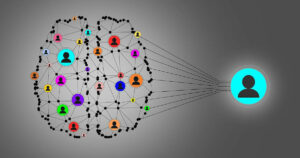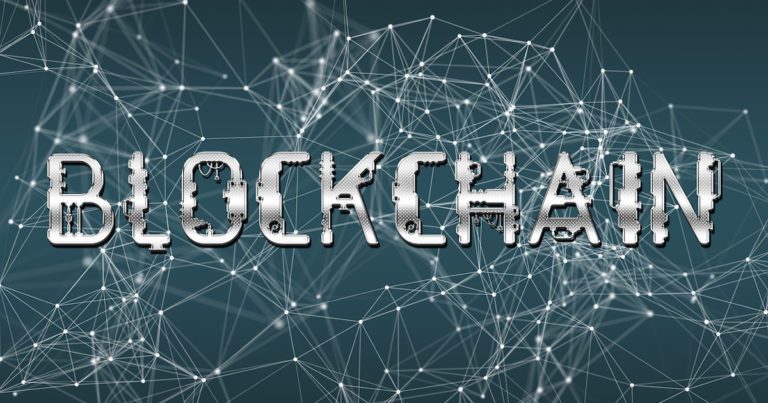
Blockchain technology isn’t new anymore; it has been around for over a decade. Today, it’s used for more than just digital money. While many associate blockchain with cryptocurrency like Bitcoin, it has expanded into various areas. The underlying technology, known as distributed ledger technology, enables smart contracts, helps track music royalties, and even allows for the creation of unique digital assets called NFTs, revolutionizing the digital art and collectibles world.
In this article, we’ll explore some real-world uses of blockchain in different industries.
- 1. What are some practical uses for Blockchain Technology?
- 2. Blockchain uses outside of Bitcoin and cryptocurrency
- 3. 15 current Blockchain use cases 2023
- 4. List of Blockchain Applications: Examples by Industry
- 5. 2 interesting Blockchain Applications are yet to emerge
- 6. How can blockchain be used to its full potential? Final Points
What are some practical uses for Blockchain Technology?
Some practical uses for blockchain technology include secure and transparent supply chain management, decentralized finance (DeFi) applications, digital identity verification, voting systems, and smart contracts for automating processes in various industries such as healthcare, real estate, and logistics.
Blockchain uses outside of Bitcoin and cryptocurrency
Despite what some may think, blockchain technology isn’t limited to just the world of cryptocurrency. In reality, blockchain has a wide range of applications that are changing various industries worldwide. To put it simply, yes, there are many ways blockchain is being used outside of cryptocurrency, which is one of the reasons why more and more people are getting interested in learning blockchain coding. We’ll provide more examples as we continue.
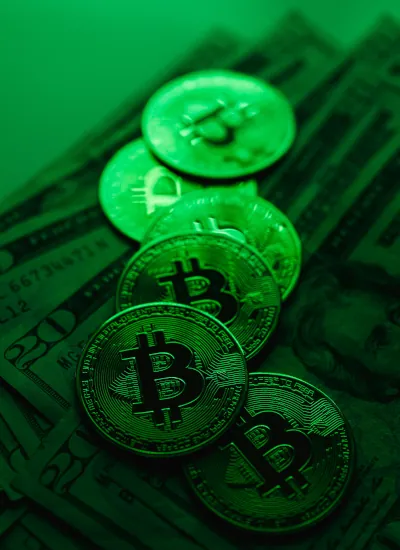
Unlock Your Crypto Potential: Become a Market Maverick with Expert Coaching!
Are you ready to dive into cryptocurrency but need some advice? With our personalized 1:1 coaching, you’ll learn to:
Understand – the fundamentals of cryptos and how they impact value.
Navigate – through the volatile crypto market with confidence.
Identify – new lucrative opportunities that maximize returns.
Manage – exchanges and risk to protect your investments.
BOOK EXPERT COACHING NOW15 current Blockchain use cases 2023
The applications of blockchain technology are both futuristic and already evident in today’s world, as emphasized by numerous industry experts. While it’s undeniable that blockchain has the potential to significantly transform various sectors in the near future, its current impacts are already quite discernible. The benefits of blockchain are so manyfold, same as the types of blockchain. Below, we outline some of the broader applications of distributed ledger technology and blockchain in general:
- Money Transfer
- Data Management
- Medical History Digitization
- Cross-border payments
- Digital identity creation
- Supply chain management
- Trade Finance
- Real Estate tokenization
- Smart contract development
- Intellectual Property Preservation
- Business processes automation
- Digital currencies creation
- Enhancing transparency in auditing
- Insurance services
- Voting systems
Blockchain technology boasts even more use cases than those mentioned here, but these highlighted applications serve as an introduction to the profound ways in which blockchain is reshaping our world.
What are Blockchain Applications exactly?
Blockchain-based applications are real-world ways in which blockchain technology is used to solve problems in the digital world. The main goal of any new technology is to make tasks easier. New technologies always change and get better over time. Blockchain technology became popular in 2009 with the rise of Bitcoin. Since then, it has evolved to solve many problems in industries that use digital technology. This technology redefines how we do things in the digital world by making things more secure and trustworthy.
One example of a blockchain application is the use of digital tokens for governing organizations. Some new organizations, called Decentralized Autonomous Organizations (DAOs), use these tokens to make decisions using smart contracts, which can’t be tampered with.
Another example is how some tech startups use blockchain to store medical data, like COVID-19 tracing apps. Medical records are stored securely on the blockchain, so users can be sure their data is safe and no one can access it without permission.
Now, let’s explore some more examples of how different industries use blockchain technology.
List of Blockchain Applications: Examples by Industry
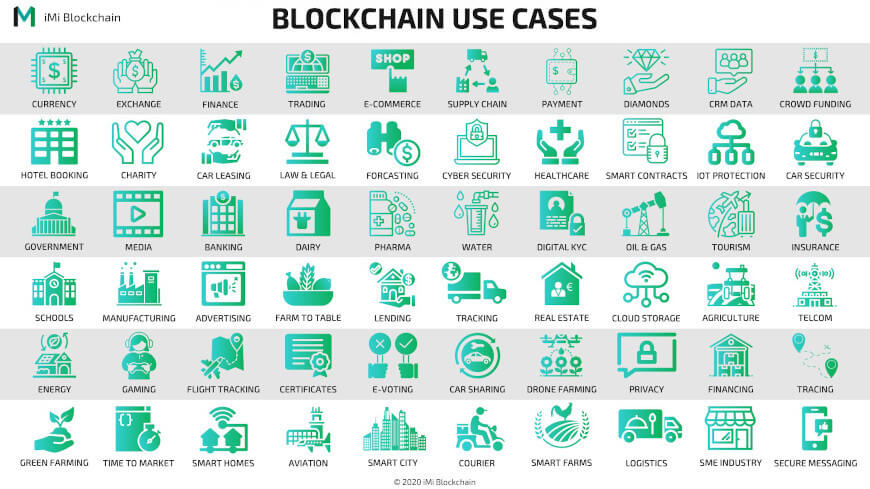
Share this Image on Your Site:
Let’s explore some important examples of blockchain technology. We’ll also address questions like, ‘What is blockchain currently used for?’ and ‘How does blockchain apply to real life?’ These applications are more noticeable in certain industries. To better understand how blockchain is being used today, let’s take a closer look at some real-world examples in these important industries. Here we go!
Blockchain applications in Healthcare
If we’re talking about an important industry where keeping information safe is really crucial, it’s definitely the healthcare field. You see, in healthcare, the information about patients and their medical histories is often at risk from cyberattacks, and bad people who want to steal this data have been successful in the past. Just recently, according to Healthitsecurity, a big eyecare company called Luxottica of America had two serious security problems, one of which involved hackers getting their hands on patient information. Shockingly, almost 830,000 patients had their data messed with just from this one company!
Now, here’s where things get interesting. There’s this cool technology called blockchain and distributed ledger technology (DLTs) that can make healthcare data even more secure. Instead of storing medical records in a regular database, you can put them on a blockchain, which is like a super-secure digital ledger. This not only keeps the bad guys out but also makes sure that diagnoses are more accurate, healthcare plans are cheaper, and medical treatments don’t break the bank. The blockchain becomes the one true source of information for research and clinical trials, ensuring improved and secure record keeping and sharing while maintaining patient privacy.
Example of Blockchain Application in Healthcare
Blockchain technology can make digital wearables even better for storing and analyzing big data. These wearables collect important information like your blood pressure, heartbeat, how much water you drink, and how many calories you consume each day. With blockchain, storing this data becomes cheaper, and it can be shared instantly. Plus, it’s super secure because of strong encryption, and there’s no waiting for data to travel. Blockchain is a super safe and efficient way to store lots of data.
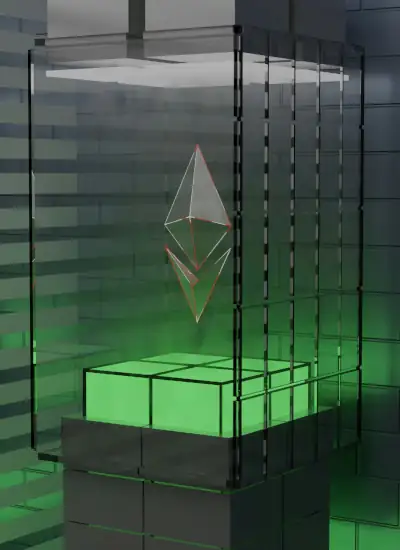
Unlock Your Business Potential with Certified Blockchain Consulting!
Dive into the future of technology with our team of certified blockchain experts. Simply pick the service you need:
Personalized Advice – tailored to your business needs.
Comprehensive Training – for you and your team.
Development Services – innovative solutions from the whitepaper to the finished blockchain.
Programming – with capabilities and tools to succeed.
TALK TO THE EXPERTS TODAYBlockchain Applications in Finance
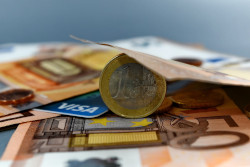
We can say without hesitation that the financial world is currently benefiting the most from blockchain technology. This is mainly because Bitcoin, the first cryptocurrency in this new industry, aimed to change the way we transfer money. Today, various ways that blockchain is used in finance are explained below.
Example of blockchain applications in finance
Cross-border payments are at the forefront of this development. Several major players in the financial services industry are now using distributed ledger technology to facilitate the transfer of funds between countries in real time. Ripple, a leading blockchain payments company, has become a significant partner for industry leaders seeking more affordable, secure, and transparent methods for completing cash transactions.
Prominent participants in the financial sector, such as insurance companies, accountants, and auditors, are also starting to adopt blockchain technology for the cost-effective storage and secure management of sensitive data.
Uses for blockchain technology in supply chain logistics

Blockchain technology is used in the global supply chain and logistics industry to track how things move from place to place. The data about where things are going is stored transparently on the blockchain. This makes it so that logistics and supply chain partners can see exactly where things are at any given time. This helps make sure that everyone is managing things well.
In addition to tracking things in real-time, using blockchain in the supply chain can also make sure that money transactions are safe, reduce delays, save money, and prevent mistakes by employees.
Example of blockchain applications in supply chain
Walmart, the American retail powerhouse, is making strides in enhancing transparency within its food supply chain. Through the utilization of Hyperledger fabric technology, Walmart has successfully traced the source of more than 25 products from five distinct suppliers. The corporation intends to extend the application of blockchain to a wider range of products and categories in the near future.
Uses of blockchain technology in business

Businesses all over the world can gain advantages from DLTs (Distributed Ledger Technologies) and blockchains in various ways. Instead of following the usual path, companies have the opportunity to create a completely new way of doing business using blockchain technology in the digital economy. For example, a company that sells products can create digital tokens on the blockchain that customers can use to make payments for those products or services.
Furthermore, businesses can also move their IT infrastructure to their own customized blockchain systems. This move will help eliminate inefficiencies in how data is managed, ensure transparency because data stored on the blockchain cannot be altered, and encourage decentralization within the wider business environment.
Example of blockchain technology in business
Ethereum represents just one of the various business models built upon blockchain technology. It operates as a decentralized platform facilitating the execution of smart contracts. This network is distinguished by its absence of downtime, censorship, or fraudulent activities since it operates without any involvement from third parties. The platform’s native cryptocurrency, Ether (ETH), is essential for participation, requiring users to possess and use it for transactions on the network.
Blockchain technology applications in the environment

Blockchain technology is often associated with how much energy crypto mining uses, which gets a lot of attention. However, blockchain also helps make businesses and supply chains work better, which is good for the environment. This has a big impact on the environment.
Blockchain is also used to help manage environmental disasters. Some startups have made special blockchain tools to predict things like volcanic eruptions and respond quickly when they happen. Blockchain can also help control car emissions, which is important for the automotive industry and the environment.
Example of blockchain application in environmental sustainability
Data related to protecting the environment and fighting climate change can be safely stored on open blockchain networks. This helps more people easily access this important information. Additionally, you can earn rewards for recycling, or use a tracking system to cut down on waste.
Applications of blockchain technology in cyber-security
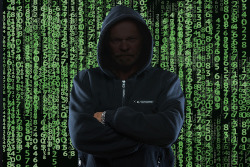
The advancement of technology in various industries has made it necessary to collaborate with people we may have never met in person. Blockchain technology has the potential to make the online world safer by improving cybersecurity. This means it can help us trust digital interactions even in a world where trust can be hard to come by. Blockchains use special coding and a unique way of confirming information or transactions. This can make it much harder for cybercriminals to access our data.
One cool thing about blockchain in cybersecurity is how it stores things like passwords and data. Instead of keeping them all in one central place, it spreads them out across a network of computers. This makes it much tougher for hackers to get their hands on sensitive information.
It’s important to remember that anything you do online is part of the cyberspace world. Blockchain has the potential to make this online world safer for everyone involved.
Example of blockchain application in cyber-security
Blockchain technology has a big impact on cyberspace, where data storage, payment services, and many other things are part of its influence.
Applications of blockchain in government
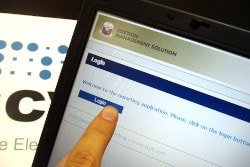
Blockchain and DLTs are being used in various ways in government today. Many governments worldwide struggle with problems like corruption, including money laundering and misuse of funds. Additionally, sharing data among government agencies has become vulnerable to cyberattacks.
In the last ten years, we’ve seen instances of government agencies being hacked, mainly because of their weak IT systems. However, blockchain technology can help address these security issues by providing greater transparency and security. Government agencies can use DLT to securely store and share data. They can also use open-source ledgers to make auditing processes more transparent and reduce financial leaks and fund misuse in government procurement procedures.
Example of blockchain technology in government
Elections play a crucial role in the functioning of any democratic government. Nowadays, blockchain technology is being employed to improve the way elections work. Blockchain uses open public ledger systems, often referred to as nodes, which are extremely resistant to hacking attempts. Additionally, the data stored on a blockchain cannot be easily altered, ensuring that it remains secure and trustworthy. This technology helps ensure that elections are conducted fairly and without any tampering, making the entire process reliable and transparent.
Interesting uses of Blockchain in Banking
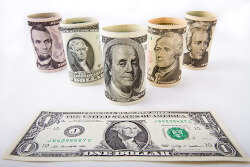
Banks and financial institutions can use blockchain technology to improve payment settlement and other important functions. The banking system often involves partnerships between different banks. The old way of doing things, which includes multiple intermediaries, can cause delays and result in customers paying extra fees before payments and cross-border transfers go through.
Example of application for blockchain in banking
Blockchain technology allows people to quickly and securely share payments with everyone involved, right as it happens. Big banks all over the world are creating their own special blockchain networks just for this industry.
Education applications for blockchain

Many universities worldwide are now creating new ways to invest using blockchain technology. The University of Wyoming is a leader in this field. Also, schools are looking into how blockchain can protect student records and other educational information from cyberattacks. In the past, there were often security breaches at schools, but now blockchain is being used to make data more secure.
Example of blockchain application in education
Blockchain technology has multiple applications in education. It can be used to securely record students’ payment history, maintain digital transcripts, and protect intellectual property.
Blockchain usage in Law – NFTs
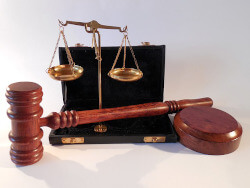
Making important regulatory data and legal documents more accessible becomes easier when they are stored on the Ethereum blockchain. Another significant use of blockchain technology is its potential to transform the way business contracts are created and managed. By utilizing smart contracts on platforms like Ethereum and other similar blockchain networks, the process of creating agreements between small businesses or parties engaged in global trade can be simplified and made more cost-efficient. Additionally, Ethereum’s blockchain supports non-fungible tokens (NFTs), which enhance the visibility of ownership and simplify the trading of digital assets. Smart contracts enable trusted transactions and agreements without the need for a central authority, further enhancing the efficiency and security of the blockchain system.
Example of blockchain usage in law
Blockchain technology can be employed to securely store and safeguard standard legal documents.
2 interesting Blockchain Applications are yet to emerge
Many people are curious about what else blockchain can do and how it might be used in the future. We’ve discussed many of its current uses, but there are still exciting possibilities to explore. There are two significant areas where blockchain technology has not been fully utilized yet. In this section, we will explore some potential future applications:
Movie libraries – For transparency and IOT internet

Movie libraries similar to Netflix have not yet been created using blockchain technology. This is one important area where blockchain has the potential to bring about significant changes. In the past, people were accustomed to going to cinemas until Netflix disrupted the industry. Now, individuals can enjoy movies for a low cost. However, there is a notable distinction: Netflix stores its entire movie collection on a single central server, which exposes the business to certain risks. Although Netflix has not encountered any major failures so far, blockchain technology and its associated tokenization system could introduce a fresh approach to the industry in the coming years.
Cloud Storage – Decentralization

This idea comes before the last one we talked about. IBM is working to offer blockchain as a service, but it might not be necessary because all blockchains are open-source. Some small, new companies are starting to create cloud storage systems that are not controlled by one central company, but these are not very popular yet. We can expect to see more growth in this area in the future.
How can blockchain be used to its full potential? Final Points
Blockchain technology has its advantages, and it’s important for governments, people in charge of capital markets, regulators, and those who create new things to start asking a crucial question: What can blockchain do for our future? Once we ask this question, we can begin looking for new ways to use blockchain and distributed ledger technologies in business operations, the Internet of Things (IoT), and other digital systems. This change can make things more transparent, secure, and efficient while helping us manage resources and asset management better.
Innovative technology is only useful when we use it, but when many people accept it, such technology can change our world. Blockchain is one such technology, and Deloitte’s global blockchain survey highlights all the good things about it.
Learn Blockchain!
Book a Blockchain Training
Watch our Webinars
Enroll in Blockchain Courses
Become a Pro yourself
Get free Blockchain Tips!
Get monthly blockchain tips.
On top, you’ll get our free blockchain beginners course right away to learn how this technology will change our lives.



